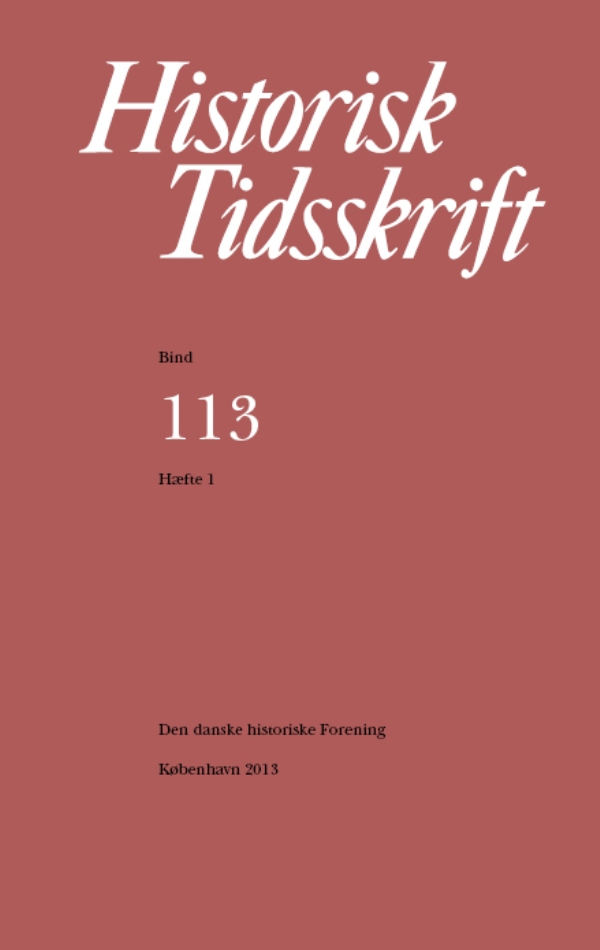Ret og pligt til integration. Socialdemokratiet og integrationsloven 1998
DOI:
https://doi.org/10.7146/ht.v113i1.56340Resumé
A right no less than a duty ... The Social Democrats and the Immigrant Integration Act, 1998The Danish Integration Act, effective as from January 1 1999, lays down binding rules and guidelines for municipal authorities. These are entrusted with ensuring the capability of refugees and reunified family members to adapt themselves to Danish society, be it in terms of language skills, labour market participation or simply familiarity with Danish norms and institutions. Means to that effect – incentives as well as obligations on the part of the immigrant – are spelled out; indeed, to this day, the field is centrally regulated in a strong degree.The present article explains the genesis of the Act. It was a response from the ruling Social Democratic Party – and even a broader political and societal welfare coalition – towards the so-called ‘foreigner issue’: the fact that a growing proportion of the electorate considered resident aliens a strain on local communities and a drain on public coffers. Whereas the Social Democrats and their coalition partners opted for better, more dedicated efforts to promote integration, right-leaning parties spoke in favour of a restrictive immigration policy that might slow down the influx of people from non-OECD countries.However, the Social Democratic Party was riven by internal strife. One faction, well represented among local politicians who felt the pressure from local problems, opinions and sentiments, called for a more robust and determined approach. During the nineteen nineties, no settlement occurred; rather, the lines of division became deeper and more complicated both within the Social Democratic Party and the governing coalition, and across the political spectrum.The Social Democrats had shaped the basic components of their integration policy already in 1988. Nevertheless, it lasted a full decade before those principles were translated into legislation. Gradually, the critical voices that wanted to put a limit to humanitarian idealism as the all-dominant guideline won more attention from the party leadership and some concessions were made, symbolized by the promotion in 1997 of the outspoken, but at the same time moderate Thorkild Simonsen, the former mayor of Aarhus, to Minister of the Interior. After this reconciliation, the legislative process entered the phase of closure. Ultimately, a small parliamentary majority passed the bill. The major centreright parties chose to abstain from voting on this issue in order not to obstruct the passing of the important Aliens Act that came bundled with the bill on integration.Until that point, integration had been a particularly conflict-ridden part of general welfare policy. Over a full decade, especially the Social Democrats had to strike suitable balances between differing forces and opinions, internally and externally, and between on the one hand staying in power and on the other hand safeguarding ideological principles.Downloads
Publiceret
Citation/Eksport
Nummer
Sektion
Licens
Ophavsret til bidrag i Historisk Tidsskrift tilhører forfatterne og Den danske historiske Forening som udgiver af Historisk Tidsskrift. For illustrationer gælder den ophavsret, som står anført i billedteksten. Ophavsretslovens almindelige bestemmelser gælder, hvilket vil sige, at ophavsretten gælder i 70 år efter forfatterens død. Bidrag i Historisk Tidsskrift må derfor, med forbehold for en ”moving wall” på tre år, frit downloades, læses, gemmes, anvendes og citeres (med kildeangivelse) i privat og videnskabelig sammenhæng, men de må ikke helt eller delvis genudgives af tredjepart, heller ikke i redigeret form, uden tilladelse fra forfatterne og Den danske historiske Forening. Henvendelse skal i så fald rettes til Historisk Tidsskrifts redaktion på histtid@hum.ku.dk.





